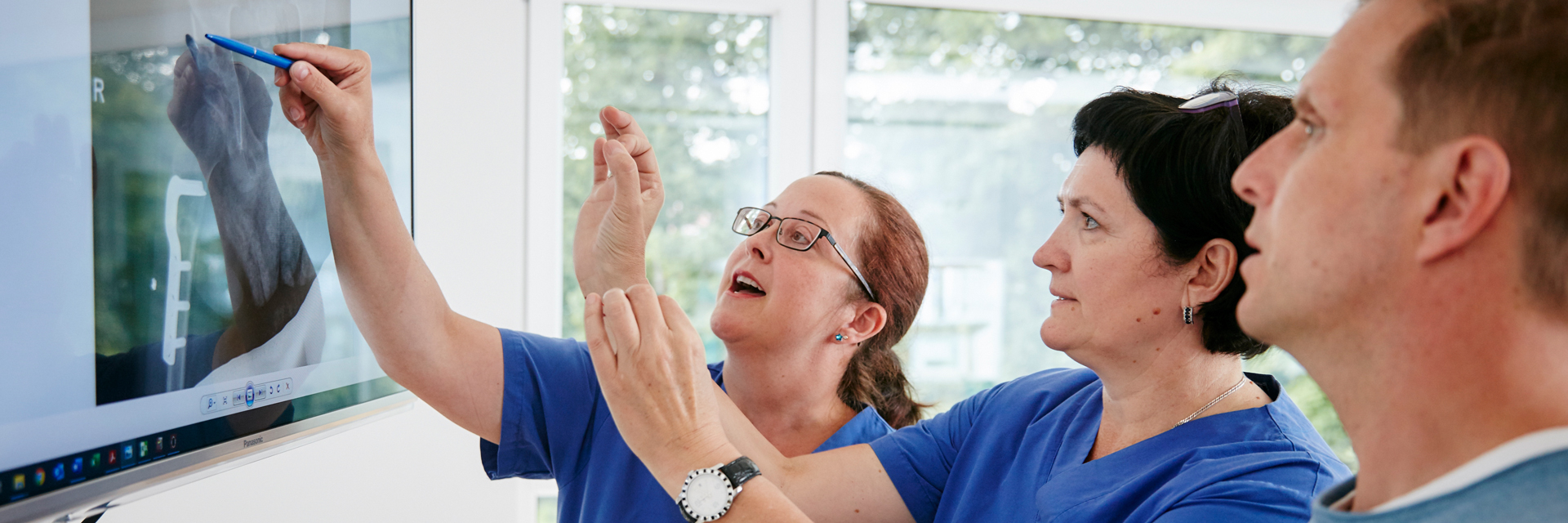
Neuroorthopaedics
Neuroorthopaedics opens up possibilities
Many children and adolescents with neurological diseases develop neurologically related orthopaedic problems in the course of their lives. Examples are stiff joints (contractures) or spinal curvatures (scolioses). The imbalance between strength and mobility can lead to gait disorders such as crouching or pointed gait.
Our comprehensive neuro-paediatric treatment concept includes regular neuro-orthopaedic checks. In this way, we want to prevent corresponding problems from going undetected, for example the gradual slipping of the femoral head out of the joint socket. It is well researched that these so-called hip luxations cannot be prevented in certain cases without surgery. We also know that surgery before dislocation is usually much better tolerated. Therefore, the hip joints should be checked regularly in order not to miss the most favourable time for an operation.
It is our conviction that our patients benefit from good and, in the best case, joint neuropaediatric-neuroorthopaedic care. Therefore, we maintain close cooperation with the paediatric neuro-orthopaedic centres in the surrounding area, but also nationally. We regularly organise joint consultation days with various centres at the Children's Hospital Schömberg. The exchange between our treating doctors and therapists and the neuro-orthopaedic specialists takes place directly on the child - so that the necessary procedure can be assessed in the best possible way.
After neuro-orthopaedic operations, we often take over the patients for early functional treatment or to build up the load. If necessary, we also carry out wound checks, scar and pain treatment and coordinate radiological follow-up checks if these are required.
Sometimes the altered anatomy leaves behind lasting uncertainty and fears that have to be overcome. We support our patients in this process as well as when, after correction, possible physiological but unaccustomed movement patterns have to be worked out through intensive therapy.


